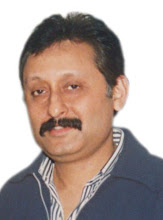Greg Chappell had class stamped all over him. Tall, upright, elegant with a high backlift, he was one of the finest on-drivers the game has seen. Consistent and unyielding, he has been a serious student of the game. Chappell scored a hundred on Test debut at Perth. He impressed with the amount of time he had to play his strokes even on that fast track against a hostile English pace attack of John Snow, Peter Lever and Ken Shuttleworth. He reached his century amid a flurry of strokes before he was dismissed for 108.
A decade-and-a-half later, in his final Test against Pakistan at Sydney, Greg Chappell needed 68 runs to equal Bradman’s Australian record aggregate of 6996 runs. Chappell passed The Don’s mark, became the first from his country to log up 7000 Test runs, and notched up a century, the only batsman to score hundreds in his first and last innings. He bid adieu to the game with a magnificent 182. Two other greats retired along with him after this Test - Dennis Lillee and Rodney Marsh. They came together and they went together. Call it destiny if you will, but things have a way of unfolding in amazing fashion. Nobody could have planned it that way. The plot is always scripted elsewhere.
When the Rest of the World, replacing South Africa, visited Australia in 1971-72, Greg Chappell was in commanding form, hitting up 425 runs in three matches at an average of 106.25. In the Wellington Test of 1973-74 against New Zealand, Greg Chappell emulated compatriot Doug Walters, Lawrence Rowe and Sunil Gavaskar by scoring a double century and century. Brian Lara emulated the feat in 2001-02. Chappell’s 247 not out and 133, totalling 380 runs, was the highest scored in a Test match until Graham Gooch hit up 333 and 123 against India at Lord’s in 1990. In that Wellington game, elder brother Ian Chappell scored 145 and 121.
In 1975-76 Greg Chappell took over the Australian captaincy from Ian. It was a keenly-awaited six-Test series between the 1975 One-day World Cup champions West Indies and runners-up Australia, a terrific match-up between classy batting line-ups and fearsome pace attacks. The Aussies prevailed and how; they walloped Clive Lloyd’s side 5-1, the only defeat being at Perth where Roy Fredericks blazed to that scintillating 169. Greg Chappell hit a hundred in each innings again, 123 and 109 not out at Brisbane. In the Sydney Test he hit up an unbeaten 182.
Kerry Packer intervened for two seasons between 1977-79 and Chappell was lost to the international game, like so many other stalwarts. He returned to captain Australia, later only in home series. A useful medium-pace change bowler, Chappell was a composed fielder, particularly in the slips. If his grandfather, former Australian captain and Bradman contemporary, Victor Richardson, was the first fielder to take five catches in a Test, against South Africa at Durban in 1935-36, Greg Chappell was the first to pouch seven in the same Test, against England at Perth in 1974-75. He finished with 122 Test catches, surpassing Colin Cowdrey’s record of 120. Later several others held more, with Rahul Dravid being the current record-holder with 207 catches in 157 Tests.
The one faux pas in his career was when as captain he asked the bowler, his younger brother Trevor, to underarm the last delivery of the third One-day final of the World Series Cup against New Zealand on February 1, 1981. There was massive public outrage and the New Zealand prime minister shot off a telegram to his Australian counterpart, accusing the Aussie team of cowardice. The fallout was that underarm bowling, eclipsed since the days of a young W.G. Grace, was finally consigned to the pages of history. Chappell was crucified. This singular mindless act has sometimes returned to haunt Greg Chappell, but was really an aberration in the career of a dignified batsman. He finished with 7110 runs in 87 Tests, 24 hundreds and an average of 53.86. Greg Chappell was a class act.
(Author Indra Vikram Singh can be contacted on email singh_iv@hotmail.com).
Don’s Century
Published in India by Sporting Links
ISBN 978-81-901668-5-0
Fully illustrated
Paperback French Fold 11 x 8.5 x 0.4 inches
188 pages


No comments:
Post a Comment